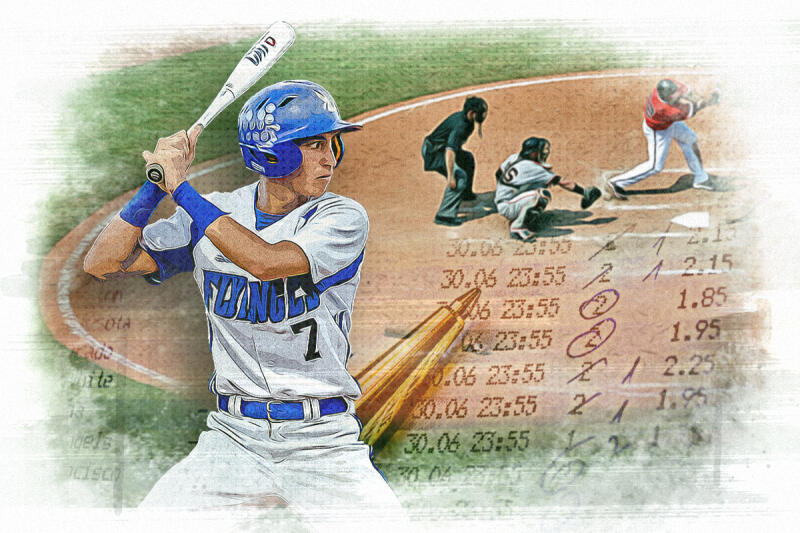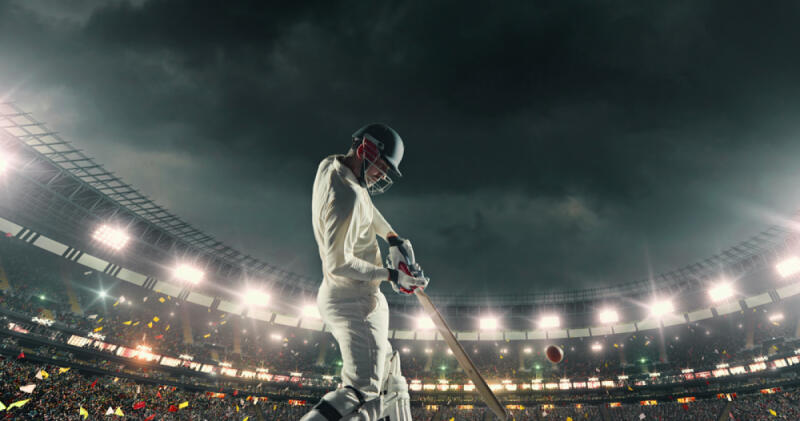The 50 Best Soccer Players of All Time – Who Are They?
From Messi and Pelé to Johan Cruyff and Beckenbauer, we share the stories behind those that have written the history books of The Beautiful Game.
Following a courageous campaign at the 2022 Qatar World Cup, Lionel Messi finally fulfilled his dream of winning the golden trophy, cementing his legacy as one of the best players–for many, the best–to set foot on a soccer pitch.
Given the way soccer has evolved, it is hard to make comparisons across time. Pelé’s spectacular plays will be forever embedded in history, and Brazilians and soccer fans worldwide will remember them the same way French aficionados will remember, fifty years from now and one hundred years from now, Kylian Mbappe’s heroic sprints and flawless dribbles.
This is soccer, a sport that the rest of the world knows as football, fútbol, or futebol. A sport that is played, according to certain estimates, by over 240 million people worldwide, and that registers a fan base of over 3.5 billion humans, which is over half of the world’s population.
If certain things make the world go round, or so we hope, football is one of those things that can bring it to a halt.

The List of The Greatest Soccer Players of All Time
Knowing its vast popularity, there are obviously disagreements when it comes to ranking the best players of all time. While many believe that Pele’s magic will always be impossible to overcome, several subgroups are advocating that it already has: the Cristiano Ronaldo die-hard fans, and the staunch Maradona supporters who, despite his blatant infraction in the goal that came to be known as the Hand of God, consider El Diego the greatest player of all time.
Related: The Best Gambling Apps Ranked
But while certain things in soccer keep us apart, others bring us together. The same fans who would square off in an Inter vs Milan could embrace themselves while supporting the Italy national team. And I am confident that, regardless of any team preferences, there will be hardly any soccer fan who disagrees that the following players are among the game’s most notorious figures: those who have made us joyful, angry, sad, and ultimately, that have reinforced our passion for the most popular sport in the world.
So, having said this, here’s the list, a tribute to those who have, as legendary Arrigo Sacchi said, made “football the most important thing of the least important things in life.”
Related: How to Bet on Soccer
Top 50 Best Soccer Players of All Time: Who Made the Cut?
Pelé
Born as Edson Arantes do Nascimento, and named after famed American inventor Thomas Edison, Pelé, who could not afford a football when he was young, rose from poverty to become one of the world’s legends of The Beautiful Game.
Pelé initially got his start with futsal–indoor football–and eventually was tried out by Brazilian club Santos FC, where he quickly shone, becoming the team’s leading goal scorer and earning a place with the Brazil national team.
With Santos, Pelé scored 643 goals in 659 appearances, almost averaging one goal per game and leading the team to dominate the Copa Libertadores and win the Intercontinental Cup in 1962 and 1963. He also played with the New York Cosmos, a team of which he was named Honorary President.
This, and the success he had with the Brazil national team, with which he scored 77 goals in 92 matches and win three World Cups–becoming the only player in history to do so–earned him the nickname of The King (O Rei, in Portuguese), and led many analysts to consider him the greatest soccer player of all time.
Pelé was known for his spectacular goals which included electrifying dribbles and incredible speed and agility, and throughout his extraordinary career, Pelé earned several accolades, such as being named the Athlete of the Century by the International Olympic Committee and was one of the two FIFA Players of the Century. From 1995 to 1998, he was also the Minister of Sports in Brazil.
He died in Sao Paulo, Brazil, on December 29th, 2022, at the age of 82.
Lionel Messi
Following Argentina’s coronation as World Champions in Qatar, Lionel Messi solidified his place as one of the best players in soccer’s history.
However, despite displaying heaps of talent since he was a kid–scoring close to 500 goals for the youth team of Newell’s Old Boys–Messi almost did not make it as a professional, as he was diagnosed with a growth hormone problem, and neither his father’s insurance nor Newell’s could cover the full cost of the treatment.
Fortunately, Messi had family in Catalonia, Spain, and there’s a story that says that Charles Rexach, then a director with FC Barcelona was so impressed with his skills that he offered young Messi a contract signed on a paper napkin, in order to secure his services before a looming deadline that was set by his agents.
Messi’s quiet demeanor and shy personality made it difficult for him to integrate with the rest of the team, but eventually, he became friends with fellow future stars like Gerard Piqué. Once he completed his treatment, Messi rapidly progressed through the ranks of Barcelona and made his first team debut at 16 years old. He would eventually forge a prolific partnership with Ronaldinho, who was then the star at Camp Nou.
Throughout his time at Barcelona, Messi scored 672 goals, leading the team to 10 La Liga titles and 4 UEFA Champions League titles. Following Barcelona’s financial troubles, Messi was transferred to Paris Saint Germain.
Messi also spearheaded Argentina’s campaign to win the gold medal at the 2008 Olympic Games, the 2021 Copa América, and the 2022 Fifa Qatar World Cup.
Known for his rapid dribbles and creative plays, Messi won six European Golden Boots, and is also widely known for his efforts as a philanthropist, including his collaboration with UNICEF and the Messi and Friends soccer matches, which he hosts to benefit the different initiatives that his foundation is involved in.
Diego Armando Maradona
By any measure, Diego Armando Maradona is one of the most controversial soccer players ever.
His “Hand of God” goal in the 1986 World Cup, which gave Argentina the edge in the quarterfinals against England, made him a hero to some and a villain to many, and his outrageous behavior on and off the pitch further strengthened his reputation as a divisive player.
Maradona’s talent, though, was undeniable, which is why, together with Pelé, he was one of the two players awarded the title of FIFA Player of the Century.
El Diego, as he was known in Argentina, had a brilliant career in Argentina, first with Argentinos Juniors and then with Boca Juniors, before moving to Italy where he commanded Napoli’s offensive line, scoring 115 goals and earning two Serie A titles along the way. This led Napoli to rename the Stadio San Paolo–it is now known as the Stadio Diego Armando Maradona.
With Argentina, Maradona won the 1986 World Cup, before having his international career end in disgrace at the 1994 World Cup, in the United States, after testing positive for drugs.
In 2020, Diego Armando Maradona died from heart complications, mourned by tens of thousands of Argentinian fans.
Franz Beckenbauer
Nicknamed Der Kaiser–which translates to The Emperor–Franz Beckenbauer’s class and stature have led many analysts to consider him the best defender of all time.
As a central defender, Beckenbauer is credited with pioneering the development of the “sweeper” position, in which a defender takes a more active role when the team transitions to an offensive approach.
Beckenbauer captained Bayern Münich to three consecutive European Cups, from 1974 to 1976, and with West Germany, he won the 1972 European Championship and the 1974 World Cup. He then repeated the feat as a manager, directing the squad that won the 1990 World Cup.
He is, as of now, the only defender in the history of football to win the Ballon d’Or award twice, and he remained active in the football scene long after his retirement, chairing the organizing committee that was instrumental in Germany hosting the 2006 FIFA World Cup.
Johan Cruyff
Johan Cruyff was the creative genius who put into practice Rinus Michels’ philosophy of Total Football, a combination of ball possession and dynamic speed that was very difficult for opponents to defend.
Born in Amsterdam, Cruyff enjoyed a considerable amount of success with Ajax, scoring 257 goals and winning eight Eredivisie titles as well as three European Cups.
This led to Cruyff being signed by FC Barcelona, a club to which Cruyff would return later, as a manager, leading them to four La Liga titles and one European Cup.
Cruyff’s playing style is considered to have had a determining influence on the way FC Barcelona plays today, which is known as the tiki-taka, and has brought enormous success both to FC Barcelona and to the Spain national team.
Representing the Netherlands, Cruyff was the head of the team that became known as “The Clockwork Orange” and that reached the 1974 World Cup Final, in West Germany. The Netherlands, albeit without Cruyff, would also reach the 1978 World Cup Final, losing against Argentina.
Cruyff had a unique combination of control and acceleration, and he is remembered for publishing his 14 basic rules for sports, which include team playing, constant learning, and always daring to try something new.
Cristiano Ronaldo
Known for his intense focus and discipline, as well as for his gifted footwork and impressive physique, Cristiano Ronaldo almost did not make it to this world.
His father was an alcoholic, and as a result, his mother seriously considered aborting him. Cristiano’s family was poor, and he remembers how some McDonald’s employees would feed him and his friends when they were growing up and had no money.
These humble beginnings helped him to overcome all obstacles, including having tachycardia, to become one of the most successful footballers of all time.
After playing with the iconic Portuguese team Sporting CP, Cristiano’s dedication and skilled dribbling were seen by Sir Alex Ferguson, Manchester United’s legendary manager, who was quick to sign him up.
With Manchester United, Cristiano Ronaldo won three Premier Leagues and one UEFA Champions League. He would then play with Real Madrid, scoring 450 goals and winning four UEFA Champions League titles and one La Liga title.
Even though he has not won a World Cup, Cristiano led the Portuguese national team to win the European Championship in 2016, being the team’s leading goal scorer.
CR7 has leveraged his brand to become the first soccer player to earn over $1 billion, creating an empire that includes a cologne collection and boutique hotels around the world.
He now plays in Saudi Arabia, for Al-Nassr.
Zinedine Zidane
Acclaimed for his elegance and intelligence as a creative playmaker, Zinedine Zidane was a key member of the team that gave France their first World Cup trophy in 1998.
Zizou, as he is popularly known, scored twice against Brazil to help Les Bleus, a team that included other legends like Didier Deschamps and Patrick Vieira, beat Brazil 3-0 at the Stade de France.
Zidane, who descends from Algerian immigrants, was born in Marseille, France, and has often spoken about the conflict of growing up between two cultures.
Even though he had his first professional breakthrough with Cannes and later played for Juventus, Zidane would go on to achieve enormous success with Real Madrid.
As a player, Zidane was a member of Los Galácticos, the star-studded Real Madrid team that also included Figo, Ronaldo, Roberto Carlos, and David Beckham.
Then, as a coach, Zidane made history by leading Real Madrid to three consecutive UEFA Champions League titles, winning the competition between 2016 and 2018.
Ronaldo
Nicknamed “The Phenomenon”, Ronaldo is widely esteemed as one of the best forwards of all time.
Ronaldo’s success came mostly from his ability to finish plays with enormous accuracy, which is why he scored 247 goals throughout his career at a club level, which included stints with some of the world’s most famous teams: Barcelona, Inter Milan, Real Madrid, and AC Milan.
A prolific goal-scorer, Ronaldo netted 62 goals with the Brazil national team, including two in the 2002 FIFA World Cup final, which Brazil won, and earned two Ballon d’Ors.
After his retirement, Ronaldo re-entered the soccer stage now as a team owner, buying Spanish team Real Valladolid and Brazilian Cruzeiro, the first team of his senior career.
Michel Platini
Even if he didn’t have a happy ending to his stint as a president of UEFA, Michel Platini’s heroics on the soccer pitch will always be remembered.
Throughout his career, Platini earned several accolades, like three Ballon d’Ors (1983, 1984, and 1985) and the 1984 UEFA European Championship.
Playing for Juventus, Platini earned the Capocannionere designation, which is given to the top goal-scorer in the Serie A, three times. He also scored nine goals for the French national team at the European Championships.
Garrincha
Also known as “The Little Bird”, Garrincha is considered one of the most-skilled dribblers in soccer history.
Born in Rio de Janeiro, Brazil, Garrincha would spend most of his club career with Brazilian team Botafogo, with which he scored a total of 245 goals, becoming one of the club’s symbols.
Even though he was born with a right leg that was six centimeters shorter than his left, and a doctor certified him as a crippled child, and despite his lack of professional training, Garrincha would go on to earn an impressive list of accomplishments, including winning the 1958 and 1962 FIFA World Cups with Brazil; the latter one in which he played a key role.
Garrincha is credited with inspiring the first popular soccer chants of “olé”, which football fans echo when a team is dominating another on the field, especially when it comes to the possession of the ball.
Gerd Müller
An impressive goal scorer, Müller is known as one of the best strikers of all time, if not the best.
Known as Der Bomber for his power and clinical accuracy, Müller scored 68 goals in 62 matches with West Germany, including the goal with which West Germany defeated the Netherlands for the 1974 FIFA World Cup title.
At a club level, Müller transcended with Bayern Munich, Germany’s iconic club, scoring 365 goals in 427 matches in the Bundesliga, setting a record which still stands today.
After struggling with Alzheimer’s, Der Bomber passed away in 2021, in Wolfratshausen, Germany.
Alfredo di Stefano
When asked about who was the best player of all time, Argentinian hero Diego Maradona said “I think the best was Di Stefano, he was superior to everyone – even me.”
A fellow Argentinian–born in Buenos Aires, even though he would later play international football for Spain–Di Stefano was known for his balanced skills, innate talent, and the intelligence with which he chose his plays on the pitch.
Di Stefano, who grew up playing on the streets, would earn most of his success with Real Madrid, a team which many analysts say Di Stefano was instrumental in putting on the map and making them the institution they are today.
With Real Madrid, Di Stefano won five European Cups, eight La Liga titles, and scored 216 goals.
In Madrid, the Alfredo Di Stéfano Stadium is named after him, and houses Real Madrid Castilla, the reserve team for Real Madrid.
Bobby Charlton
Bobby Charlton was an instrumental figure for the 1966 England national team, which won the FIFA World Cup, England’s only World Cup trophy up to now.
Born in Ashington, Bobby Charlton was promptly recruited by the Manchester United youth squad, and then, would go on to become one of their greatest players of all time.
A midfielder who could also align as a forward, Charlton scored 249 goals for the Red Devils, which he led to the 1967/68 European Cup and three Football League First Division titles.
Charlton, who now suffers from dementia, became a prominent philanthropist, supporting causes like landmine clearances in countries like Cambodia and Bosnia-Herzegovina.
Ferenc Puskas
Born in Budapest, Hungary, Ferenc Puskas was one of the most prolific goalscorers that the game has ever seen.
Throughout his career, Puskas shone both at a club level and internationally, captaining the Hungarian national team that became known as the Mighty Magyars, and that is, until now, the most successful generation in Hungarian football history.
That generation would go on to win the gold medal at the 1952 Olympic Games and earn second place at the 1954 FIFA World Cup. Puskas’s goalscoring abilities were fundamental for both achievements.
Puskas, who was both technically gifted and a team leader, would go on to play for Real Madrid, where he would win four Pichichis–an award given to the highest scorer–and win three European Cups and five La Liga titles.
The FIFA Puskas Award, which is given to the player who has scored the year’s most beautiful goal, is named in his honor.
Zico
Another jewel of Brazilian soccer, Zico is regarded as one of the best creative playmakers in history.
In 1981, his genius helped Flamengo defeat a star-filled Liverpool and win the Intercontinental Cup, with Zico providing critical assists in the three goals.
On the pitch, Zico was the type of player who could see what others couldn’t, the visionary madman who always had a trick under his hat. Beyond this, he was also a gifted free-kick taker, which contributed to his tally as he became the top scorer in the history of Flamengo.
Eusebio
Also known as the “Black Panther”, Eusebio was a ferocious striker that propelled Portuguese soccer to new heights.
Born in Mozambique, where he got his start playing barefoot on improvised pitches, many of Eusebio’s greatest performances happened with Benfica, a team with which he scored 473 goals in 440 matches. This is an average of over one goal per game.
Eusebio also was a part of the Portuguese team that earned third place at the 1996 World Cup, Portugal’s best performance ever. Eusebio would score nine goals in the tournament, including four against North Korea as Portugal came back from an early deficit and won the match 5-3.
Until his death, Eusebio remained an ambassador for soccer worldwide.
Marco van Basten
Even though he had to retire early, at the age of 28, Marco van Basten’s career consolidated him as one of the greatest strikers in the history of The Beautiful Game.
Van Basten scored 300 goals and broke several records, including being the first player in history to score four goals in one Champions’ Cup match.
Named the FIFA World Player of the Year in 1992, Van Basten spent his club career with Ajax and AC Milan, where he formed a feared partnership with fellow Dutchmen Ruud Gullit and Frank Rijkaard.
Van Basten was recognized for combining the goal-scoring ability of a striker with the creative vision of a playmaker, and throughout his short career, he won three Ballon d’Ors and two Capocannoniere as the leading striker in the Serie A, as well as winning the 1988 European Champions with the Netherlands national team, which he later managed.
Paolo Maldini
Throughout his career, Paolo Maldini was considered a prominent example of staunch loyalty.
His career happened in an era where high-profile signings and transfers became more prominent, yet, Maldini played his entire career with AC Milan. He won 26 trophies with the Rossonero, including five European Cup (later UEFA Champions League) titles and seven Serie A titles.
Maldini also captained the Italian national team, and he gained notoriety for his ability to encourage his teammates and be a source of leadership and inspiration.
Nicknamed Il Capitano, Maldini is considered one of the best defenders of all time, and is one of the few players that has made over 1,000 playing appearances.
Rivelino
A key element in Brazil’s 1970 FIFA World Cup winning campaign, Rivelino is credited with popularizing Joga Bonito, which was later immortalized in some of Nike’s award-winning commercials.
An attacking midfielder by nature, Rivelino had it all: ball control, dribbles, free-kick perfection and creative vision. He pioneered a dribble called the “flip-flap”, in which an offensive player fakes a movement and quickly moves around to the other side, launching an explosive attack.
Now a football commentator, Rivelino spent most of his career with Corinthians, and later played for Fluminense and Al-Hilal.
Kylian Mbappe
One of the youngest members of this list, Kylian Mbappé has already been a FIFA World Cup Champion once and a FIFA World Cup Finalist twice.
A skilled dribbler also notorious for his extremely fast acceleration and sublime yet powerful shooting, Mbappé is the youngest player to score for France at a World Cup, and he is one of two teenagers that have netted a goal in the World Cup Final. The other one is Pelé.
In Qatar 2022, Mbappé won the Golden Boot, scoring eight goals.
Mbappé plays for Paris Saint-Germain, and the rights for his services were so contentious–with Real Madrid as the top contender–that even French President Emmanuel Macron intervened, asking Mbappé to stay in Paris.
Kylian Mbappé is now the highest-paid soccer player, with sources reporting he will earn $128 million for the 2022-2023 season. He has used his fortune to become a philanthropist, launching Inspired by KM, a charity that is supporting 98 young people in Paris to fulfill their dreams.
George Weah
Look at this goal, and you will understand why George Weah is one of the greatest soccer players ever.
In that play, Weah took the ball close to his own goal and launched a phenomenal tirade, a cross-court sprint in which he resembled the best of Maradona and Usain Bolt combined. It was a display of Weah’s talent, he had the dribble and at the same time, the physical corpulence that made him one of the top strikers of all time.
Born in Monrovia, Liberia, Africa, Weah’s life journey was not easy. He was born in poverty, and, after he was spotted by Claude Le Roy, who was then coaching Cameroon, soccer became his passport for a better life.
Following Le Roy’s advice, Monaco’s head coach Arsene Wenger signed Weah, and his impressive abilities earned him a spot on the coveted AC Milan, with which he won two Scudetti. In 1995, Weah won the Ballon d’Or.
After football, Weah took to politics. He is now the President of Liberia.
Ruud Gullit
Born in Amsterdam, Gullit was one of the three Dutchmen, together with Frank Rijkaard and Marco Van Basten, who forged an extremely productive partnership at AC Milan to win three Serie A titles and two European Cups.
A 1987 Ballon d’Or recipient, Gullit was acclaimed because of his versatility. Gullit was a creative attack player, but he could also defend fiercely, and his speed made it hard for his opponents to stop him at any time.
Internationally, Gullit won the 1988 European Championships with the Netherlands national team.
George Best
Born in Belfast, Northern Ireland, George Best was a Manchester United superstar who was celebrated both for his on-the-pitch performances and his off-court bombastic personality.
Best was United’s leading goalscorer for five seasons in a row, and ended up tallying 179 goals for the Red Devils, winning one European Cup and two Football League First Division titles.
One of the first members to be inducted into the English Football Hall of Fame, Best’s partying moods and problematic lifestyle made him a favorite of the media, who nicknamed him The Fifth Beatle.
Roberto Baggio
The Divine Ponytail, as he was known, Roberto Baggio was a gifted playmaker who also gained acclaim for his bending free-kicks.
Aldo Agroppi, an Italian coach, once said that “The angels sing in Baggio’s legs,” referring to his incredible ability whether he was dribbling, passing, or shooting.
With the Italian national team, Roberto Baggio scored 27 goals and earned second place at the 1994 FIFA World Cup, where, unfortunately, he missed his kick in the penalty shootout.
Regardless of that, Baggio is regarded as one of the best Italian players ever, and throughout his illustrious career, he won the 1993 Ballon d’Or, and in 2005, a poll run by La Gazzetta dello Sport elected him as the best Italian player of all time.
Lothar Matthäus
Lothar Matthäus was the captain of the West Germany squad that lifted the 1990 FIFA World Cup trophy, which earned him the Ballon d’Or in the same year and the designation as the 1991 FIFA World Player of the Year.
A versatile player who could play both defense and attack, Matthäus found the most success as a sweeper, a position popularized by fellow German legend Franz Beckenbauer, which allowed him to contribute on both sides of the pitch.
At a club level, Matthäus spent most of his career between Borussia Mönchengladbach, Bayern Munich, and Inter Milan. He would win seven Bundesliga titles and one Serie A title.
Karl-Heinz Rummenigge
A two-time winner of the Ballon d’Or (1980 and 1981), Karl-Heinz Rummenigge was a feared and tenacious forward who helped West Germany win the 1980 UEFA European Championships.
Widely regarded as an extremely talented attacking player, Rummenigge had the advantage of being able to score both from a distance and from close range. He scored 45 goals for West Germany, and 217 goals for Bayern Munich.
He was also praised for his leadership on and off the pitch, a reason why he was later named the Chairman of the Executive Board and CEO of Bayern Munich. Rummenigge’s tenure as an executive further cemented Bayern as one of the most solid soccer teams in the world.
Socrates
A dexterous orchestra conductor who could both assist and score, Socrates is a referent of Brazilian football, and one of its most unconventional characters.
Beyond football, Socrates was a physician, having earned a medical degree from the University of São Paulo, which earned him the nickname Doctor Socrates.
He was also a chain smoker, and a proponent of democracy who used football as a way to oppose the then-ruling military regime, by founding the Corinthians Democracy movement.
On the pitch, Socrates was a part of the 1982 Brazil national team, widely regarded as one of the best Brazilian teams of all time, which also included Zico and Falcão. He scored 22 goals for Brazil, and at the club level, he had a distinguished career, mostly with Botafogo and Corinthians.
Socrates was named the 1983 South American soccer player of the year.
Paolo Rossi
Together with Roberto Baggio and Christian Vieri, Paolo Rossi holds the record for being the top World Cup goalscorer for the Italy national team.
Six of those goals were in 1982, when Rossi led the Italians’ triumphant parade towards the FIFA World Cup title. That year, Rossi would also win the Golden Boot, which celebrates the top goalscorer of the tournament, and the Golden Ball, which is awarded to the best player. Only two other players–Kempes and Garrincha–have received that honor.
Known for his quick pace, agility, and sense of positioning, Rossi would also break records at a club level, after he became the first player to be the top scorer in both Serie B and Serie A in consecutive seasons. He played for Vicenza, Perugia, and Juventus.
Bobby Moore
The eternal captain of West Ham United, Bobby Moore is considered one of the best defenders in football history.
Moore was part of the English team that won the 1966 FIFA World Cup, and his defensive prowess earned him a place on the list of the FIFA World Cup All-Time Team.
His leadership on the pitch was lauded by his teammates, who considered him an “imperial” defender known for his vision, tenacity, and competitive spirit.
When asked about who was the toughest defender he had played, Pelé responded: Bobby Moore.
Luka Modric
Born in Croatia when it was still Yugoslavia, Modric was a child when the Croatian War of Independence happened, which forced his family to flee the area.
Modric’s family lived as refugees in the Hotel Kolovare, and Luka learned how to play soccer in the hotel’s parking lot.
From those humble beginnings, he rose to prominence to win four UEFA Champions League with Real Madrid, a team where he forged a solid midfield line with Casemiro and Toni Kroos.
With the Croatia national team, Modric reached the 2018 FIFA World Cup final, which earned him the World Cup Golden Ball, the 2018 Ballon d’Or and the 2018 UEFA and FIFA Men’s Best Player of the Year awards.
Dino Zoff
A legendary goalkeeper, Dino Zoff safeguarded the Italian goal and captained the team to win the 1982 FIFA World Cup. At the time, Zoff was 40 years old, which made him the oldest person to ever win the World Cup.
Zoff also won the 1968 UEFA European Championships with Italy, and at a club level, his strong presence was transcendent for Juventus to win six Serie A titles.
Born into a family of farmers, Zoff initially thought of being a mechanic, as his future in soccer was uncertain given his initial rejections by Inter Milan and Juventus.
Five years later, Udinese signed him, and the rest is history.
Ronaldinho
If Rivelino popularized the Joga Bonito, Ronaldinho Gaúcho was its main proponent in modern times.
Ronaldinho became globally renowned for his magic tricks and showmanship skills, an entertaining and graceful performer that, when focused, delivered some of the best moments that football has ever seen.
His goal against England at the FIFA 2002 World Cup was a perfect example of his visionary genius, with which he helped the Brazilian team lift the World Cup Trophy.
With Brazil, Ronaldinho also won the Copa América and the Confederations Cup, and at a club level, Ronaldinho won the most prestigious trophies in both sides of the world, the Copa Libertadores (with Grémio de Porto Alegre), and the UEFA Champions League, with FC Barcelona.
Xavi
Xavi Hernández was one of the visionary leaders of FC Barcelona’s historic midfield line that conquered four UEFA Champions League crowns, eight La Liga titles, and won the Copa del Rey three times.
Praised for his extraordinary ability to direct the game and assist his teammates, Xavi would also earn major success with the Spain national team, winning the 2010 FIFA World Cup in South Africa, and the 2008 and 2012 UEFA European Championships.
Originally formed in FC Barcelona’s prestigious academy La Masia, Xavi’s journey came full circle and he is now the head coach of the team with which he spent all of his career, except for a four-year stint at Qatari club Al Sadd.
Andrés Iniesta
Like Xavi, Iniesta was a key figure in two of the best teams that have ever set foot on a football pitch: FC Barcelona and the Spain national team.
A sharp midfielder with an extraordinary football IQ, Iniesta was an orchestra conductor. He won the UEFA European Championships twice (2008-2012) and the FIFA World Cup once with the Spain national team.
At a club level, Iniesta captained FC Barcelona for three seasons, and throughout his career at the club, he won four UEFA Champions League titles, nine La Liga crowns, and won the Copa del Rey six times.
A recipient of the UEFA Men’s Player of the Year Award in 2012, Iniesta now plays in Japan, for FC Vissel Kobe.
Gianluigi Buffon
Known for his solid, stoic presence, Gianluigi Buffon is widely regarded as one of the best goalkeepers in history.
With the Italian national team, Buffon won the 2010 FIFA World Cup, in which he did not concede a goal for 453 minutes. He would finish the tournament conceding only two goals–one of them, an own goal, and the other one a penalty.
Buffon has the record for most caps in the history of the Italian national team, playing for his nation a record 176 times.
Throughout his career, which included winning eleven Serie A titles, Buffon was named the Serie A Goalkeeper of the Year twelve times.
Lev Yashin
Nicknamed The Black Spider, both for his black uniform and for his agility and athleticism, Lev Yashin is considered one of the best goalkeepers ever.
With both Dynamo Moscow and the Soviet Union national team, Yashin was credited with reinventing the goalkeeping position, by getting actively involved with the defensive lines, intercepting plays and leaving his area to block prospective attackers.
A member of the FIFA World Cup All-Time Team, Yashin, who was discovered while playing for the team of a military factory, is the only goalkeeper in history to receive the Ballon d’Or, which he was awarded in 1963.
Giuseppe Meazza
A prolific striker who led Italy to win the 1934 and 1938 FIFA World Cup, Giuseppe Meaza’s legend earned him the right to have one of the most iconic stadiums in the world named after him, the Giuseppe Meazza Stadium, which is home to Inter Milan–where he played–and AC Milan, although the latter’s fans call it San Siro.
Nicknamed Il Genio for his technical genius, Meazza was the leading Serie A goalscorer three times and scored a total of 537 goals throughout his career.
In 1934, Meazza won the FIFA World Cup Golden Ball.
Hristo Stoichkov
Known for his powerful and dominant style, Hristo Stoichkov positioned Bulgaria on the worldwide soccer map, when he commanded the team that reached the semifinals at the 1994 FIFA World Cup.
With 6 goals, Stoichkov was the top goalscorer of the tournament, sharing the award with Oleg Salenko.
That same year, Stoichkov would win the Ballon d’Or, after also completing a phenomenal season with FC Barcelona, the pinnacle of a career in which he won five La Liga titles (including four consecutive ones), and one UEFA Champions League.
Roger Milla
Representing Cameroon, Roger Milla’s incursion in soccer’s history books happened at the 1990 FIFA World Cup, a tournament in which he scored four goals. At that time, Milla was 38 years old, which made him the oldest player to ever score at a World Cup.
Four years later, though, Milla broke his own record, scoring in the 1994 FIFA World Cup at age 42.
His landmark celebrations–running to the corner flag and dancing–earned him a place in the hearts of many fans worldwide, and his speed, prolific scoring ability, and on-the-pitch leadership made him known as one of the best African players of all time.
Franco Baresi
Before Paolo Maldini (even though they would play 196 games together), Franco Baresi was AC Milan’s heart and soul, the lion defender who kept his allegiance to the Rossonero for all of his career.
Baresi is widely regarded as one of the best Italian players of all time, and as one of the best defenders ever, and that is largely due to his consistency and discipline with which he was able to command the team’s defensive line.
Like fellow Italian legend Roberto Baggio, he had the misfortune of missing a penalty in the final shootout against Brazil for the 1994 FIFA World Cup title. Nevertheless, his composure and competitive spirit have kept him a favorite of Italian fans until today.
A winner of six Serie A titles, three UEFA Champions League (then European Cup) titles, and two Intercontinental Cups, Baresi was a part of the FIFA World Cup All-Star Team, and in 2013, he was inducted into the Italian Football Hall of Fame.
Johan Neeskens
A solid and versatile midfielder who could cover the entire field, Neeskens was a pivotal part of the epochal Clockwork Orange, the Netherlands national team which also included Johan Cruyff and Rob Rensenbrink.
With the Netherlands, Neskens played in the final of both the 1974 and 1978 FIFA World Cup, and in 1974, he won the FIFA World Cup Silver Boot.
His midfield performances earned him wide acclaim, with pundits crediting Neeskens as a stable guardian, helping the dynamic Netherlands team have a solid balance that allowed them to be one of the best teams to ever represent the country.
At a club level, Neeskens would have the most success with Ajax, winning three consecutive European Cups and two Eredivisie titles.
Hugo Sánchez
After Lionel Messi and Cristiano Ronaldo, there is one name that shines through as the top foreign goal scorer in the history of La Liga, Spain’s soccer first tier.
That name is Hugo Sánchez.
Considered the best Mexican footballer ever, Hugo Sánchez scored 562 goals throughout his career, and broke many records with Real Madrid, including winning four Pichichi (leading La Liga goalscorer) trophies in a row.
In 1990, Sánchez won the European Golden Shoe, and his spectacular goals, like this bicycle kick strike, are forever embedded in the memory of Real Madrid fans.
Rudi Völler
A feared and reliable striker, Rudi Völler played two FIFA World Cup Finals with West Germany.
He would score a goal in the first one, equalizing a tight contest against Argentina that the South Americans would eventually win. In 1990, however, Völler would have better luck, as West Germany defeated Argentina in what would be West Germany’s last participation in a World Cup, since 1990 was the year of the German reunification.
In 2002, now in the role of manager, Völler guided Germany to the 2002 FIFA World Cup Final, which they lost against Brazil.
Enzo Francescoli
Nicknamed The Prince for his elegance and classy technical displays, Enzo Francescoli is considered one of the best players in the history of Uruguay, where he hails from.
With Uruguay’s national team, Francescoli won three Copa América titles, in 1983, 1987, and 1995, and at a club level, he would win the Copa Libertadores, which he conquered with Argentina’s River Plate in 1996.
Sometime later, Francescoli moved to France, being an instrumental player for Olympique de Marseille, winning the 1989-90 French Division 1 title.
After retirement, Francescoli founded the TV channel GOL TV, which is headquartered in Miami, Florida, and has gained a significant audience by broadcasting soccer games in the United States in both English and Spanish.
Kenny Dalglish
A member of the Scottish and English Football Halls of Fame, Sir Kenny Dalglish is considered one of the best strikers in the history of the United Kingdom.
Born in Scotland, Dalglish made his professional debut with Celtic, with which he won four Scottish league titles and four Scottish cups.
Following his success with Celtic, Dalglish was transferred to Liverpool, where he was a member of one of the best Liverpool teams ever, winning six English league titles and three European Cups. Dalglish scored 172 goals with Liverpool, and after his retirement, he would return to the club as a manager on two different occasions.
Roberto Carlos
For goals like this one, an impressive bending shot against France, Roberto Carlos is considered one of the best free-kick takers ever.
His shots have computed over 105 miles an hour, and even if he mostly played as a left-back, Roberto Carlos had an offensive mentality that contributed significantly to his team’s attack.
With the Brazil national team, Roberto Carlos won the Copa América in 1997 and 1999, and he was also a part of the team that reached the final at the 1998 FIFA World Cup (being a runner-up) and that lifted the World Cup trophy in 2002.
Claude Makélélé
Born in Zaire, now known as the Democratic Republic of Congo, Claude Makélélé played international football for France and had very successful club stints with both Chelsea and Real Madrid.
Considered one of the greatest defensive midfielders, Makélélé was to the Real Madrid Galácticos what players like Neeskens were for the Dutch Clockwork Orange. His role was to be a provider of balance and stability, recovering critical balls, assisting his teammates and covering up spaces so that Real Madrid could shine offensively.
Makélélé won one UEFA Champions League with Real Madrid, and his departure was mourned by some of the team’s heroes like Fernando Hierro, who declared that Makélélé was the most important player of the team, and that his departure marked the beginning of the end for the Galácticos era.
He is now a coach for Chelsea’s youth squad.
Teófilo Cubillas
Considered the best Peruvian player in history and selected as one of the Top 100 players ever by Pelé, Teófilo Cubillas was an attacking midfielder who guided Perú to their best FIFA World Cup performance so far, reaching the quarter-finals in the 1970 edition.
Acclaimed for his scoring ability, free kick taking, and extraordinary vision, Cubillas played for a variety of clubs, like Alianza Lima, in Perú; FC Basel, in Switzerland; and FC Porto, in Portugal.
Cubillas was selected to the South American All-Star Team of the past 50 years, and together with Germans Miroslav Klose and Thomas Müller, is the only player to have netted five or more goals in two different World Cup editions.
Gordon Banks
Before football, Gordon Banks worked as a bagger for a coal merchant and as a hod carrier. He was already an aspiring goalkeeper, but it wasn’t until Chesterfield spotted him that Banks began to make a name for himself, a name that now is widely acclaimed as one of the greatest goalkeepers of all time.
Banks then would go and play for Leicester City and Stoke City, but his real prowess was stewarding England’s defense throughout the 1996 FIFA World Cup, which The Three Lions won.
A winner of the FIFA Goalkeeper of the Year award on six different occasions, Banks would have his career cut short after a car accident ended with him losing his sight in his right eye.
Francesco Totti
Nicknamed Il Capitano, Francesco Totti is an example of loyalty and on-and-off the pitch leadership. Throughout his career, Totti only played for two teams: AS Roma, at a club level; and for the Italian national team.
Totti earned wide acclaim for his creativity and versatility, being equally gifted at scoring goals and making assists that were critical for the Italian national team to reach the final in the 2000 UEFA European Championships, and to win the title in the 2006 FIFA World Cup.
With AS Roma, Totti broke several records, including being their top goalscorer of all-time and the player with more appearances in the team’s history. Totti, who scored 250 goals in the Serie A, played for AS Roma from his debut, in 1993, to his retirement, in 2017, and is considered one of the best, if not the best player in the history of the club.
FAQ
Who is the best soccer player of all time?
Among the players considered the greatest of all time are Pelé, Diego Maradona, Lionel Messi, Johan Cruyff, and Cristiano Ronaldo.
Who is better, Messi or Ronaldo?
It depends on the category being analyzed. Messi and Ronaldo have different playing styles, and their club careers have been equally successful, especially with Barcelona and Real Madrid, respectively.
Was Pelé better than Messi?
It is hard to compare Pelé with Messi as they belong to different generations, but both are widely regarded as two of the best players of all time.
Our editorial content strives to be highly informative and educational to our audience, especially for visitors who are new or relatively new to analyzing and predicting sporting event results. All of our content is created by informed writers with backgrounds in their subject area and reviewed for omissions or mistakes.
Our editorial team is run by individuals with many years of experience in digital publishing, editorial, and content production. Our editorial content is always marked clearly in any instances where it may be sponsored by a third party, though it is still reviewed by our staff to ensure it remains consistent with our company mission.
- Popular
- Latest







